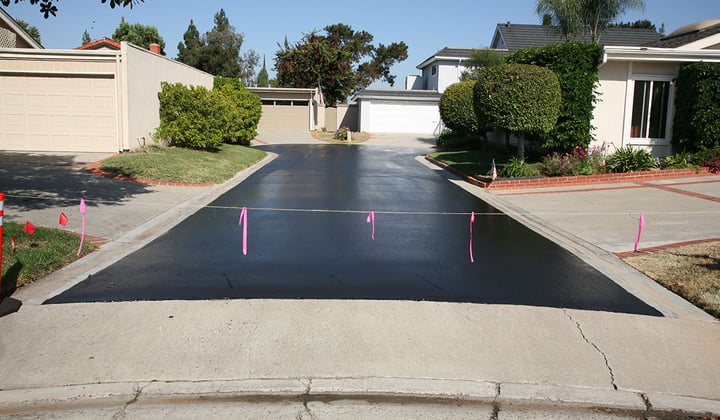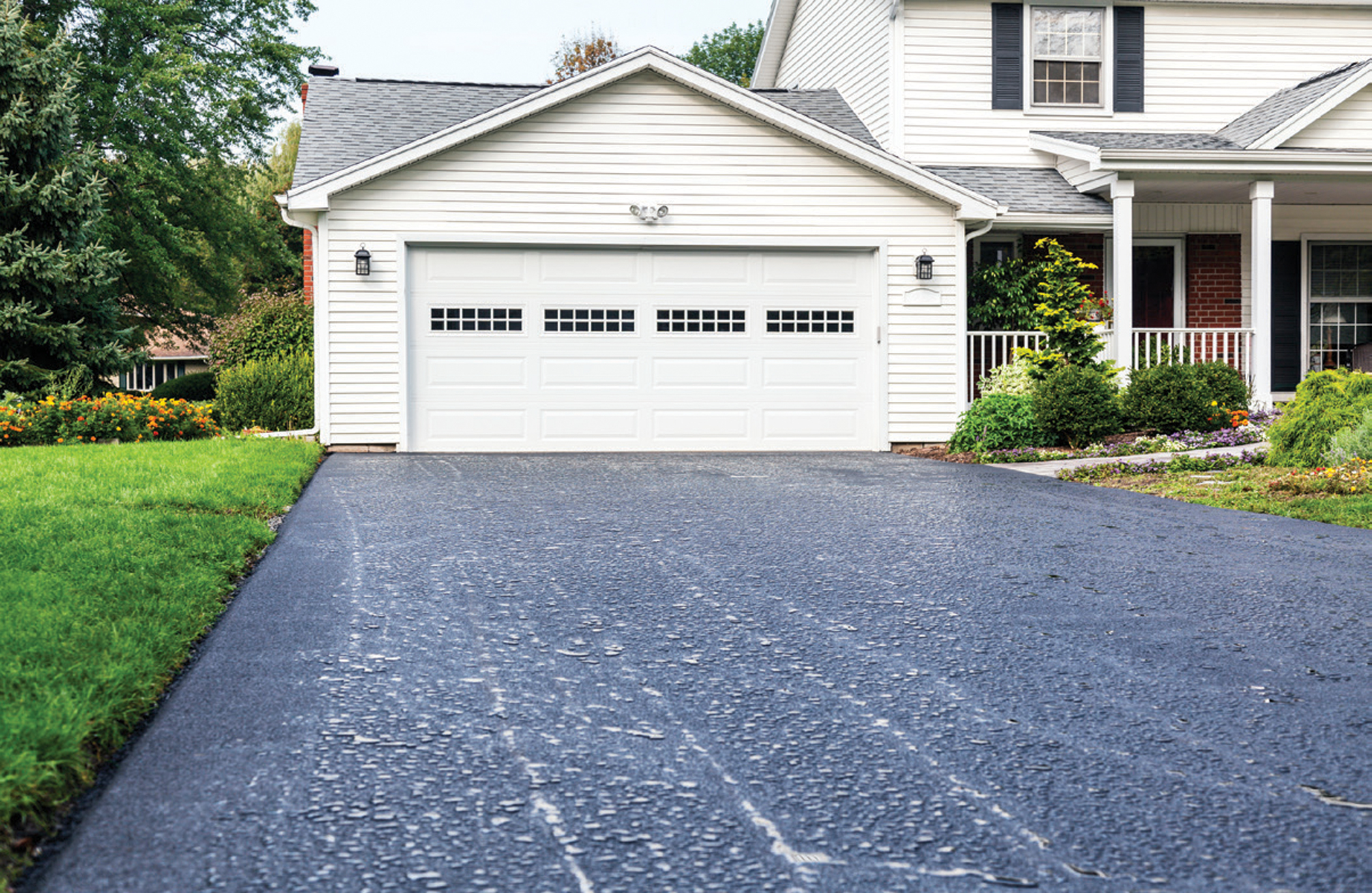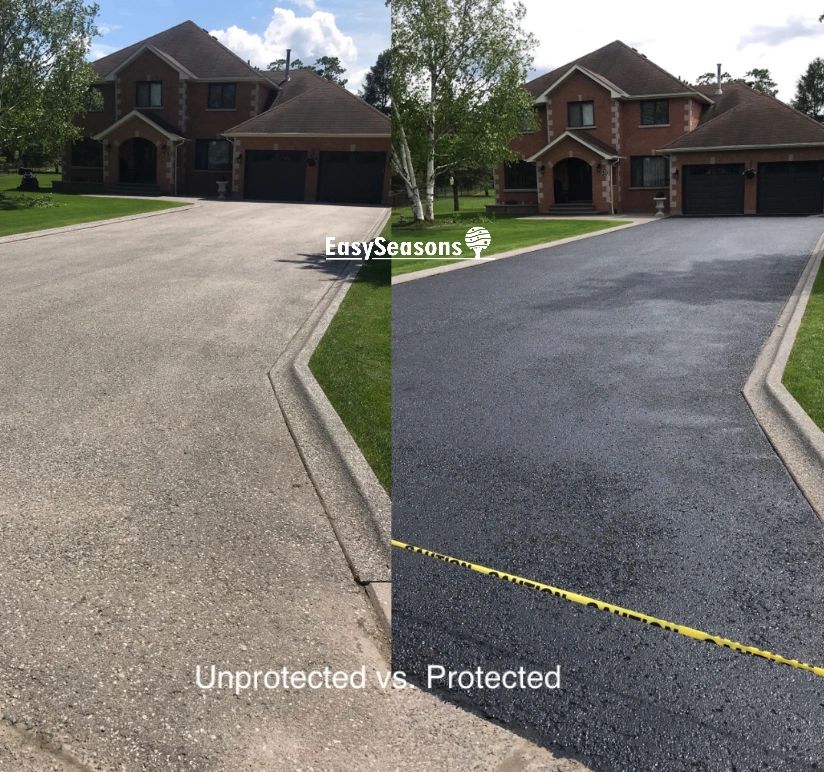Hot Mix Asphalt: A Sustainable Solution for Sidewalk
Warm Mix Asphalt (HMA) has actually emerged as a leading lasting choice for sidewalk services, supplying a myriad of cutting-edge technologies and ecological benefits. As the need for environmentally friendly building and construction practices expands, exploring the subtleties of HMA's sustainability can provide useful insights right into the future of sidewalk services.
Ecological Benefits of Hot Mix Asphalt

Additionally, Warm Mix Asphalt helps to minimize urban warmth island effects. Its dark shade absorbs sunshine, decreasing the quantity of heat showed back right into the atmosphere contrasted to lighter-colored sidewalks. This can lower ambient temperature levels in city areas, reducing the need for air conditioning and eventually reducing energy intake.
In addition, Hot Mix Asphalt contributes to enhanced stormwater monitoring. Its permeable nature permits water to infiltrate the pavement and recharge groundwater materials, minimizing drainage and the threat of flooding. These ecological advantages make Warm Mix Asphalt a lasting choice for paving freeways and roadways.
Power Performance in HMA Manufacturing
Is power performance a crucial consider the production of Hot Mix Asphalt (HMA)? Absolutely. Energy plays a significant role in the production of HMA, impacting both cost and environmental sustainability. One key aspect of power performance in HMA manufacturing is making use of cozy mix asphalt (WMA) technologies (angled parking). WMA permits the mixing and positioning of asphalt at reduced temperature levels compared to conventional hot mix asphalt, causing lowered power usage during production. This procedure not only decreases fuel use however also lowers greenhouse gas exhausts, making it a much more eco-friendly alternative.
Furthermore, innovations in plant innovations have caused more energy-efficient HMA manufacturing procedures. Modern plants are developed with attributes like recycled asphalt sidewalk (RAP) handling abilities, efficient burner systems, and improved insulation, all contributing to power cost savings. By maximizing energy use in HMA production, the sector can reduce its carbon impact while maintaining top notch pavement products. Power efficiency is, consequently, an important factor to consider in guaranteeing the sustainability of Warm Mix Asphalt production.
Recyclability of Warm Mix Asphalt
The recyclability of Hot Mix Asphalt (HMA) is a crucial aspect of its sustainability and long-lasting ecological impact. HMA is one of the most recycled products in the USA, with over 100 million tons of recovered asphalt sidewalk (RAP) being recycled annually in brand-new sidewalk construction. Recycling HMA provides a number of ecological advantages, such as lowering the need for virgin materials, lowering energy usage during production, and reducing the quantity of waste sent out to garbage dumps.
The procedure of reusing HMA entails crushing the existing sidewalk, squashing it right into smaller sized items, and blending it with brand-new accumulation and asphalt binder to produce a recycled mix. This recycled mix can commonly execute along with and even far better than standard HMA, while calling for less basic materials and creating lower greenhouse gas discharges. By incorporating RAP into new sidewalk tasks, roadway companies can save natural resources, reduce prices, and decrease the ecological footprint of road construction and upkeep tasks. Generally, the recyclability of HMA plays a considerable function in promoting lasting practices within the pavement industry.

Long-Term Performance of HMA
Asphalt sidewalks show durability and durability over an extended period, showing the long-term performance of Warm Mix Asphalt (HMA) Additionally, innovations in HMA innovation, such as the usage of polymer-modified binders and warm mix asphalt, have better enhanced the longevity and longevity of HMA sidewalks. By focusing on high quality construction and maintenance techniques, HMA proceeds to show itself as a lasting and cost-effective solution for lasting sidewalk framework.

HMA: Durability and Sustainability
Showing both sturdiness and sustainability, Hot Mix Asphalt (HMA) has actually become a keystone in the construction of durable pavement frameworks - regrading. HMA's durability comes from its ability to stand up to heavy tons, harsh weather, and high web traffic quantities, making it a dependable selection for streets, freeways, and airport terminal runways. The make-up of HMA, which generally consists of accumulations, binder, and filler, plays an important duty in enhancing its durability and resistance to put on and tear
Additionally, HMA's sustainability depends on its recyclability and energy-efficient production process. The capability to recycle reclaimed asphalt pavement (RAP) in new HMA blends reduces the demand for virgin materials and lessens the ecological impact of pavement building and upkeep. In addition, the power efficiency of generating HMA lies in its lower mixing temperature levels contrasted to various other read more sidewalk products, leading to decreased energy usage and greenhouse gas discharges.
Verdict
In conclusion, warm mix asphalt (HMA) uses a sustainable solution for sidewalk with its ecologically friendly features. HMA's recyclability, energy efficiency in manufacturing, and long-lasting resilience make it an eco-friendly selection for road construction.
HMA is one of the most recycled products in additional reading the United States, with over 100 million heaps of recovered asphalt pavement (RAP) being recycled annually in brand-new pavement building and construction.The process of reusing HMA includes crushing the existing pavement, squashing it into smaller sized pieces, and blending it with new accumulation and asphalt binder to create a recycled mix.Asphalt sidewalks demonstrate longevity and durability over an extensive period, mirroring the long-term efficiency of Hot Mix Asphalt (HMA) Furthermore, advancements in HMA modern technology, such as the use of polymer-modified binders and warm mix asphalt, have actually even more boosted the go to my site resilience and long life of HMA pavements. The capability to recycle reclaimed asphalt pavement (RAP) in brand-new HMA mixtures minimizes the need for virgin materials and lessens the ecological impact of pavement building and construction and upkeep.